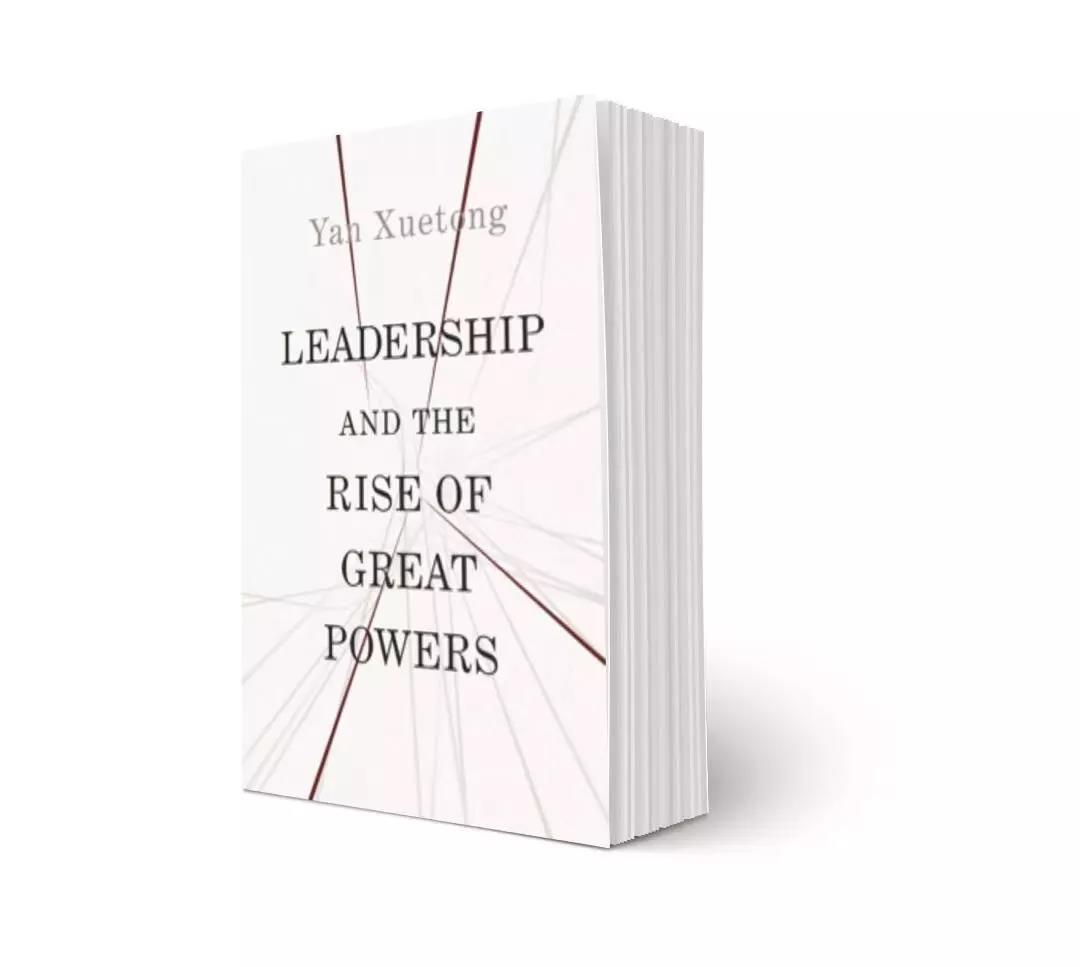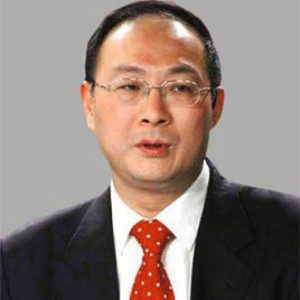五月,美国以国家安全为由对华为实施交易禁令,意图阻止中国主导全球通信技术领域。有分析指出,中美之间的贸易战或升级为科技战。对此,中国外交政策、国家安全和中美关系领域知名专家,清华大学国际关系研究院院长阎学通在接受CGTN主持人邹悦专访时表示,随着中国逐步缩小与美国的实力差距,同时中美两国同步拉大与全球其它国家的实力差距,未来的世界走向“中美两极化”。这一时期的特征是缺乏国家担任全球领导角色,国家间将出现更多冲突。然而积极一面是,尽管地区间冲突或增加,大国之间没有爆发大规模正面战争的风险。本篇为专访下集,上集请见:对话阎学通:美国的贸易战逻辑 经济利益至上
“We are coming into a bipolarized world. There could be no leader, at least for the upcoming 20 years,” Yan Xuetong, dean of the Institute of International Relations at Tsinghua University, said on CGTN’s Zoom In with Zou Yue.
“I regard China as a rising power and I believe it will become a superpower by 2023,” he said. “In that process, China is reducing the capability gap with the United States. Meanwhile, the two countries are enlarging the capability gap with the rest of the world, that’s why I call it bipolarization.”
Yan argued Beijing will remain a junior superpower for the next 10 years.
“America definitely holds the upper hand. And China cannot improve its comprehensive capability to exactly the same level of the United States in at least the next decade. In 15 years, it is possible, but definitely not in 10 years,” he stated.
As for how the U.S.-China bipolarization will impact the international community, Yan believed all the other countries will face the pressure of taking sides between Washington and Beijing.
“The issue of 5G is one example,” said Yan, “the U.S. has been asking its allies to stand with it.”
The U.S. Secretary of State Mike Pompeo has been touring America’s allies since February in an attempt to discourage them from deploying equipment by Chinese telecoms company Huawei on their soil, cautioning them that it would complicate their partnership with Washington.
However, America’s attempt to wall off Huawei has not gone as smoothly as the Trump administration had expected. Among its closest allies, only Australia has banned Huawei from its new networks. Countries like the UK and Germany believed any potential Huawei risks to 5G, if ever, are manageable and can be blunted.
Yan warned that there is a larger threat from bipolarization: a world in chaos!
The U.S. has been the sole world superpower after the end of the Cold War. Some experts argued its international authority has suffered a hit after it invaded Iraq without UN authorization in 2003. And it has been further weakened by Trump’s “America First” policy, which focuses more on winning than on leading.
Over the past two years, Donald Trump has withdrawn from a number of international agreements and accords, from the Trans-Pacific Partnership, Paris climate accord and Iran nuclear deal, to the UNESCO and the United Nations Human Rights Council, arguing they cost America too much but benefit it too little.
“Leadership means capability and resources. The U.S. feels it’s too expensive to offer a global leadership. That’s why the Trump government tried to shrug off this leadership for America’s economic interests. Meanwhile, China does not have that kind of resources to support such a leadership,” said Yan.
“There is no leader, there’s no order,” Yan noted, “and from my understanding, in the next 10 years, there will be fewer peaceful settlements, and more instances of violation of norms.”
“However, the good news is there will be no world war among major powers. There will be no direct war between the U.S. and China, though there could be regional military conflicts, such as in the Middle East and Africa,” Yan added.
As for how China can move from a superpower to one with a global leadership, Yan stressed the importance of being a humane authority.
“Authority means winning people’s hearts and support based on trust,” he said.
“And among the many things China can do, the most important thing is to keep good on its promises,” Yan Xuetong offered his dose of advice, “This means to never promise anything beyond our capability. Then we can gradually build credibility.”

《Leadership and the Rise of Great Powers》由普林斯顿大学出版社出版,2019年4月初发行。
Zou Yue: Your new book “Leadership and the Rise of Great Powers” — When you wrote this book, did you have the topic of China becoming a rising power, a superpower (in mind)?
邹悦:您出版了新书《领导力与大国崛起》。在写这本书的时候,您有没有考虑过中国崛起或成为超级大国这方面的话题呢?
Yan Xuetong: I regard China as a rising power, and I predicted that China will be a superpower by 2023. Because on the one hand, China is reducing the capability gap with the United States. On the other hand, China and the U.S. simultaneously enlarge the capability gap with the rest of the world. So that’s why I regard China as a rising power.
阎学通:我认为中国是一个崛起中的大国,我也预测过中国到2023年将成为超级大国。因为一方面,中国正在缩小与美国的实力差距。另一方面,两国也正在同时拉大与世界其他国家的实力差距。这就是为什么我将中国视为一个崛起中的大国。
Zou Yue: But how about the relations between the two? Who will take a predominant role in the relations say in 10 years down the road?
邹悦:但是中美两国关系如何呢?在未来,比如说未来十年里,谁会在这一关系中占据主导地位呢?
Yan Xuetong: Ok, at this moment, America definitely holds the upper hand and China [is] in an unfavorable position. In 10 years, I think the situation cannot change. In 15 years, it is possible, but definitely not in 10 years.
阎学通:目前来看,美国肯定占了上风,而中国则处于不利地位。我认为10年内这种情况都不会改变。15年后有可能改变,但10年内绝不可能。
Zou Yue: So this is a transitional period. How will the change of power focus affect international relations?
邹悦:所以现在是过渡时期。这种权力重心的变化将如何影响国际关系呢?
Yan Xuetong: All of the other countries will face pressure from the competition between China and the U.S. to take side. And like Pompeo traveled among America’s allies to ask them to take side with the U.S. on the issue of the 5G, Canada and Australia took sides with the U.S. and Japan took side with the U.S. in December last year. But then they suddenly changed [their attitude] earlier this month. And the UK and the other European countries, from the very beginning, they took sides with China.
阎学通:所有其他国家都将面临来自中美竞争的压力,要求他们选边站队。比如蓬佩奥在访问美国盟友时要求他们在5G问题上支持美国,因而加拿大和澳大利亚选择站在美国一边。去年12月,日本也选择站在美国一边。但本月早些时候,他们突然改变了态度。而英国和其他欧洲国家从一开始就站在中国一边。
Zou Yue: If China wants to be a superpower and in a leadership position, how can China move in that direction?
邹悦:如果中国想成为超级大国并取得领导权,中国该如何向着这个方向迈进呢?
Yan Xuetong: The most important thing is to keep good on its promises. That means to never promise anything beyond our capability. So reduce the promises and keep all promises implemented, and then we can create credibility gradually. The improvement of the strategic credibility will bring about leadership.
阎学通:最重要的是要信守诺言。这意味着永远不要做出任何超出我们能力范围的许诺。因此,不要轻易承诺,但一旦承诺,就要履行。这样我们才能逐步建立信誉。提高战略信誉度就会带来领导力。
Zou Yue: What do you think will be the international order in the coming decade?
邹悦:您认为未来十年的国际秩序会是怎样的呢?
Yan Xuetong: From my understanding, in the next 10 years, there will be more conflicts among nations. There will be less peaceful settlements, and there will be more violations of norms. So I think in the next 10 years, the world order will be worse than the current situation for the last 10 years. But there’s no danger of a grand war. There’s no danger of a direct war among major powers. There’s not only no danger of a direct war between China and the U.S., there is even no direct war between any major powers.
阎学通:在我看来,未来10年里,国家间将会有更多的冲突。和平解决问题的情况将会减少,而破坏规则的情况将会增多。所以我认为在未来的10年里,世界秩序将比过去10年的情况更为混乱。但是没有爆发大规模战争的危险。大国之间也没有正面战争的危险。不仅是中美之间,任何大国之间也没有这种风险。
Zou Yue: So no world war. But what kind of conflicts? Brexit?
邹悦:所以不会有世界大战。但是会有什么样的冲突呢?英国脱欧这种吗?
Yan Xuetong: Yeah, not only Brexit, I think there will be more military conflicts among regional powers like in the Middle East, Africa.
阎学通:是的。不仅仅是英国退欧,我认为中东和非洲等地区的大国之间还会有更多的军事冲突。
Zou Yue: Why?
邹悦:为什么?
Yan Xuetong: There’s no leadership, there’s no order. Leadership is based on capability and material resources. And the U.S. feels it is too expensive to offer a global leadership. Meanwhile, China does not have that kind of resources to support a global leadership
阎学通:因为全球范围内没有处于领导地位的国家,就没有秩序。领导力是建立在实力和物质资源的基础上。美国觉得成为全球领导的代价太大。与此同时,中国缺乏足以支撑领导地位的资源。
Zou Yue: When can we see the end of the tunnel?
邹悦:我们什么时候才能看到曙光呢?
Yan Xuetong: I’m very pessimistic. I don’t think we will see the light of this tunnel within 20 years. Ten years…and there’s a very slight hope to change the situation.
阎学通:我个人是十分悲观的。我认为在未来二十年内都看不到曙光。十年内改变现状的希望是十分渺茫的。
Zou Yue: What would your advice be to policymakers, not only now, but for future generations in the U.S. and China?
邹悦:您对中美两国现在以及未来的政策制定者有什么建议呢?
Yan Xuetong: I would suggest them to consider and focus on their strategy on material interests, rather than ideological interests and ignore the ideological conflicts or differences, embrace different values in different civilizations or cultures, and then create a kind of a new value.
阎学通:我建议他们考虑关注实际利益,而不是意识形态上的利益。要忽略意识形态上的冲突或差异,接纳不同文明或文化中的不同价值观,然后创造一种新的价值观。
Zou Yue: On that cautiously optimistic note, we end our talk with Professor Yan Xuetong. Thank you so much
邹悦:抱着谨慎乐观的态度,我们与阎学通教授的谈话就到这里。非常感谢您的到来。
Yan Xuetong: It’s my pleasure. Thank you.
阎学通:我荣幸之至。谢谢。
原文链接:
https://mp.weixin.qq.com/s/cVByIgk4QR0PA2XboKHrJQ
未经允许不得转载:金灿荣粉丝网 » 悦辩悦明 | 对话阎学通:不安的和平时代 中美两极化的世界


 预告【阎学通专场】观学院·北京12月19日
预告【阎学通专场】观学院·北京12月19日 全球战疫|专访阎学通:疫情会永久性改变世界秩序吗?
全球战疫|专访阎学通:疫情会永久性改变世界秩序吗?